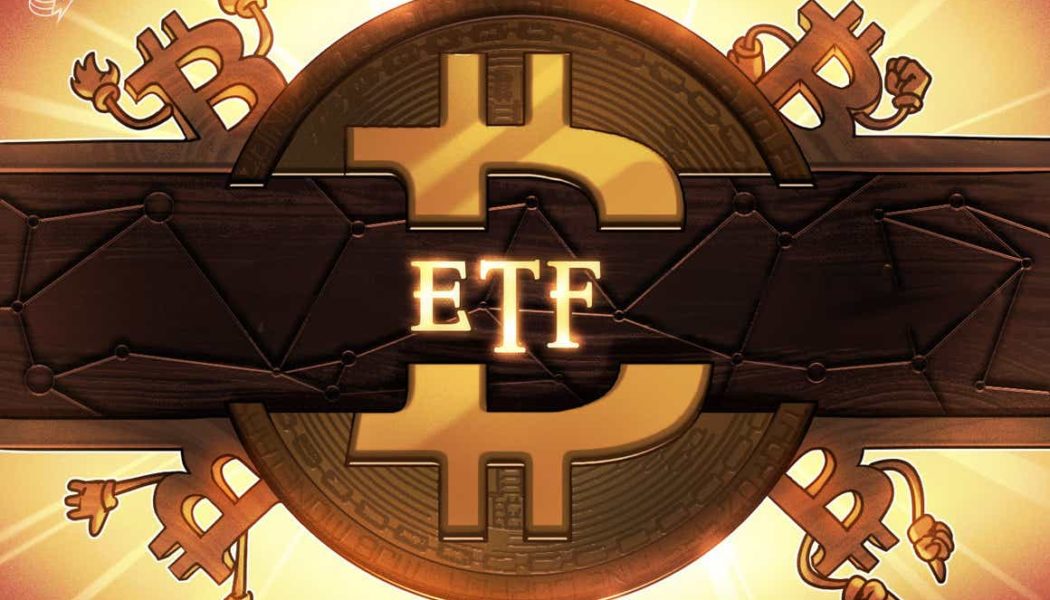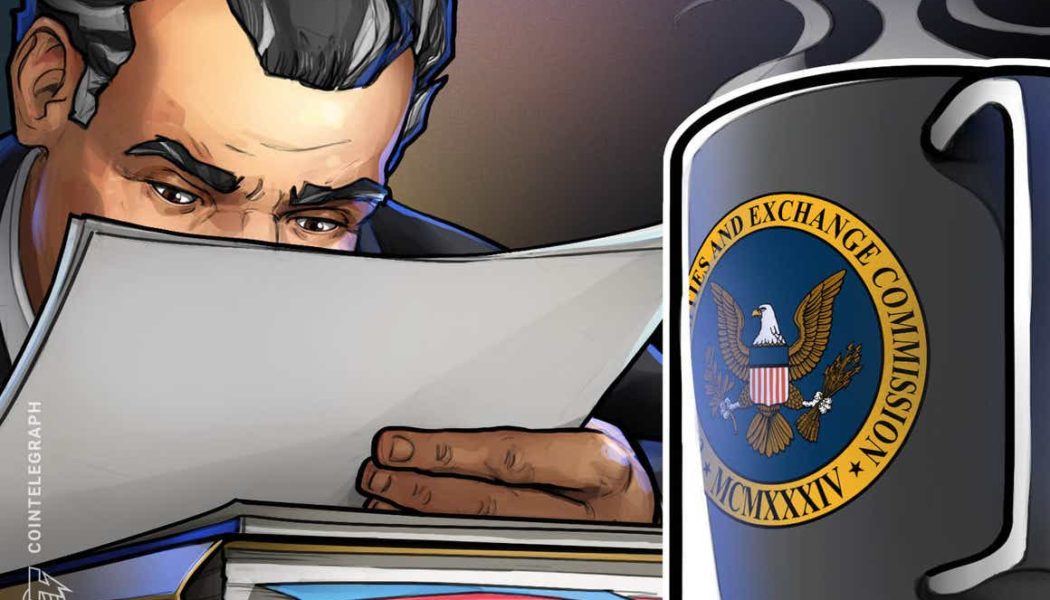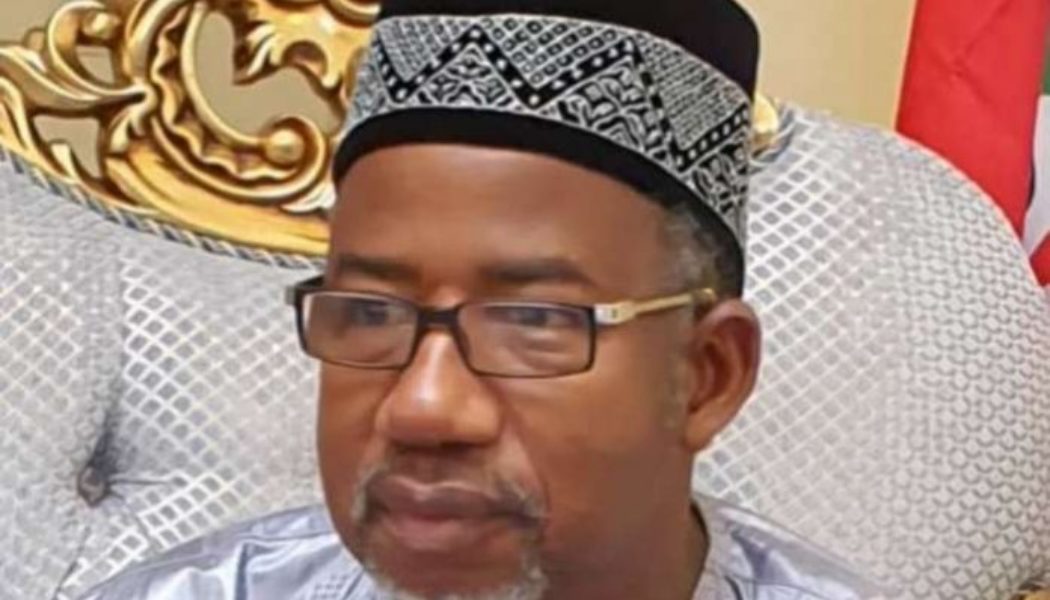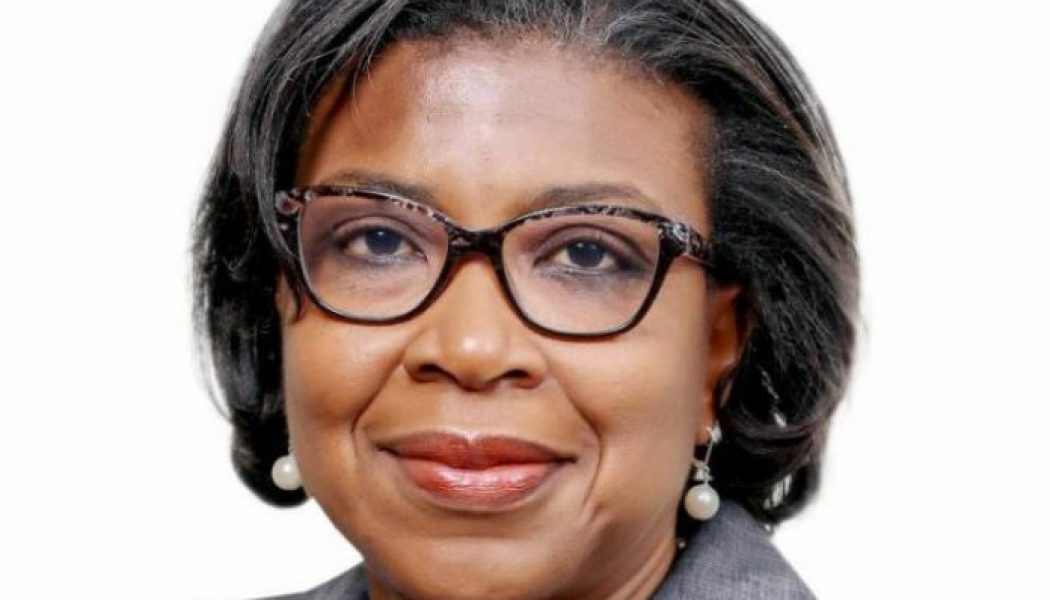SEC
SEC commissioner Elad Roisman will leave by end of January
Elad Roisman, one of five members of the Securities and Exchange Commission’s board, has announced his intention to resign from the government agency. In a Monday announcement, Roisman said he had sent a letter to President Joe Biden informing him of his decision to leave the SEC by the end of January 2022. The SEC commissioner said he would continue working with his colleagues “to further our mission of protecting investors, maintaining fair, orderly and efficient markets, and facilitating capital formation” until his departure. Roisman was sworn into office in September 2018 under the previous administration and served as acting SEC chair from December 2020 to January 2021, when he was replaced by commissioner Allison Herren Lee. His term was originally set to expire in 2023. Gary Gensle...
SEC commissioner Elad Roisman will leave by end of January
Elad Roisman, one of five members of the Securities and Exchange Commission’s board, has announced his intention to resign from the government agency. In a Monday announcement, Roisman said he had sent a letter to President Joe Biden informing him of his decision to leave the SEC by the end of January 2022. The SEC commissioner said he would continue working with his colleagues “to further our mission of protecting investors, maintaining fair, orderly and efficient markets, and facilitating capital formation” until his departure. Roisman was sworn into office in September 2018 under the previous administration and served as acting SEC chair from December 2020 to January 2021, when he was replaced by commissioner Allison Herren Lee. His term was originally set to expire in 2023. Gary Gensle...
Law Decoded: Making sense of mixed signals, Dec. 13–20
The crypto regulation regime in any jurisdiction is an equilibrium among multiple institutional, group and personal interests of actors who have a sway over financial and monetary policies. These interests never perfectly align, frequently resulting in contradictory signals coming out of various power centers. Speaking about systemic risks facing the world’s largest economy last week, the United States Federal Reserve chair said digital assets were not a financial stability concern. Two days later, the U.S. Financial Stability Oversight Council issued a report that concluded that stablecoins and decentralized finance could pose sizeable financial stability risks. The source of this discrepancy could lie in the fact that the Fed’s mandate is to maintain a robust economy, while the FSOC, whi...
Law Decoded: Making sense of mixed signals, Dec. 13–20
The crypto regulation regime in any jurisdiction is an equilibrium among multiple institutional, group and personal interests of actors who have a sway over financial and monetary policies. These interests never perfectly align, frequently resulting in contradictory signals coming out of various power centers. Speaking about systemic risks facing the world’s largest economy last week, the United States Federal Reserve chair said digital assets were not a financial stability concern. Two days later, the U.S. Financial Stability Oversight Council issued a report that concluded that stablecoins and decentralized finance could pose sizeable financial stability risks. The source of this discrepancy could lie in the fact that the Fed’s mandate is to maintain a robust economy, while the FSOC, whi...
Valkyrie’s latest ETF offering has exposure to Bitcoin
Crypto asset manager Valkyrie has launched an exchange-traded fund with exposure to Bitcoin on the Nasdaq Stock Market. In a Wednesday SEC filing, Valkyrie said its Balance Sheet Opportunities ETF will not invest directly in Bitcoin (BTC) but 80% of its net assets would offer exposure to the crypto asset through securities of U.S. companies with BTC on their balance sheets. These companies may include custodians, crypto exchanges, and traders. The filing specifies that Valkyrie’s ETF may invest up to 10% of its net assets in securities of Bitcoin mining firms, as well as up to 5% in the securities of pooled investment vehicles in the U.S. that hold BTC. At the time of publication, shares of the fund under the ticker VBB are trading for $24.48, having fallen more than 1.5% since launch...
SEC chair’s regulatory agenda fails to include clarity on crypto, says Hester Peirce
Hester Peirce, a commissioner for the United States Securities and Exchange Commission known by many in the space as Crypto Mom, is pushing back against the regulatory body’s agenda for not including clarification on digital assets. In a Monday joint statement, Peirce and SEC Commissioner Elad Roisman said they were “disappointed” in the failure of chairperson Gary Gensler’s regulatory agenda to include items aimed at helping companies raise capital, furthering investor protection, undoing recent rules passed by the commission and providing clarification on crypto. According to the two regulators, Gensler’s uncertain stance on digital assets may create problems for firms looking to operate in the space. “Rather than taking on the difficult task of formulating rules to allow investors and r...
SEC sets deadline for crowdfunding platforms registration
File Photo The Securities and Exchange Commission has directed all existing investment crowdfunding portals/digital commodities investment platforms to note the requirements and eligibility criteria for raising funds through and/or operating a Crowdfunding Portal and comply with the registration requirements or cease operations by the 30th of June, 2021. This was contained in a notice released by the Commission on Wednesday. According to the SEC, the rules governing Crowdfunding business in Nigeria came into effect on the 21st day of January, 2021, which was part of efforts by the Commission to ensure investor protection while encouraging innovation in the conduct of securities business. “In line with the transitional provisions of the Rules, all persons/entities operating an investment cr...
DMO: Nigerian roads financed with Sukuk not repaying debt as planned
File Photo The Debt Management Office (DMO) has decried the country’s debt service to revenue ratio, describing it as a major issue of concern. Patience Oniha, the Director-General of DMO, said this in Abuja on Thursday at the fifth Budget Seminar (webinar) organised by the Securities and Exchange Commission (SEC). The theme of the budget seminar was, “Financing Nigeria’s Budget and Infrastructure Deficit through the Capital Market.” Oniha stressed the need for infrastructure built with borrowed funds to generate revenue to service the debts. According to her, “We have done the Sukuk, for instance, but the government is the one servicing the debt of those Sukuk. “They (the debts) are not being serviced with revenue from those sources (infrastructure). “I think that when we are talking abou...


















Understanding the strength of small businesses
The number of small businesses keeps growing in the formal and informal sectors of the Nigerian economy, due to the role of small businesses as the live-wire of any economy and the backbone of major developed economies the world over. Though Nigeria rely majorly on oil and revenues derived from it, from context observation the economy is largely supported by small businesses covering almost all spheres of activities within the country, ranging from Nano, kiosk, and Micro businesses most importantly. A visible reference usually includes the vulcanizers, corner shop owners, single retail marketers, repairers, painters, business center operators, restaurants, market women, and men in the various open markets, among others. and the formal operations such as the law firms, accounting firms, con...